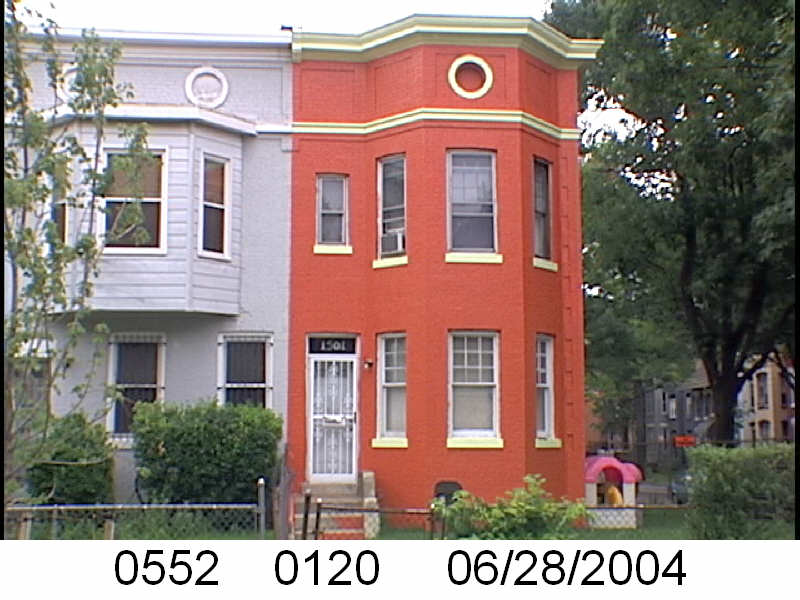The Washington Sanitary Improvement Company (WSIC) was a late 19th century charitable capitalism experiment that ended in the 1950s. This blog started looking at the homes that were supposed to be sold to African American home buyers, after decades of mainly renting to white tenants.
 Looking at WSIC properties they tend to have a pattern where the properties were sold to a three business partners, Nathaniel J. Taube, Nathan Levin and James B. Evans as the Colonial Investment Co. for $3 million dollars. Those partners sold to African American buyers. There was usually a foreclosure. Then the property wound up in the hands of George Basiliko and or the DC Redevelopment Land Agency (RLA). Then there was the odd lucky ones who managed to avoid that fate.
Looking at WSIC properties they tend to have a pattern where the properties were sold to a three business partners, Nathaniel J. Taube, Nathan Levin and James B. Evans as the Colonial Investment Co. for $3 million dollars. Those partners sold to African American buyers. There was usually a foreclosure. Then the property wound up in the hands of George Basiliko and or the DC Redevelopment Land Agency (RLA). Then there was the odd lucky ones who managed to avoid that fate.
Let’s see what happens with 1501 3rd St NW:
- January 1951 Evans, Levin and Taube sold all of 1501 3rd St NW to Frank Alexander, then a single man.
- January 1951 Mr. Alexander borrowed $8,000 from Colonial Investment Co. favorite trustees Abraham H. Levin and Robert G. Weightman.
- September 1966 Mr. Alexander was released from his mortgage obligations and owned 1501 3rd St NW free and clear.
- Sometime before November 1993 the estate of Frank Alexander Sr (Charles R, Frank Jr, Alice N. Alexander and Anna L. McClain) transferred the property to Alice Norita Alexander and Frank Alexander Jr.
- From 1996 to 2006 Alice N. Alexander borrowed often and after adding Lashavio L. Faison to the property, and continue to borrow, lost it to foreclosure.
This is a different story than the usual WSIC house stories. Here a man bought a house. He paid off the house. He was able to leave the house to his family and they lost it.
If I have the right person, Frank Alexander was born February 16, 1918 in Cabarrus County, North Carolina, one of seven children to James and Anna Alexander. His father died when he was young. He was enlisted in 1944 and discharged in 1945. We know in 1951, he purchased 1501 Third Street NW in Washington, DC. He died June 5, 1988 and left the property in a will to people I assume are his family members.
It’s a happier story. The original buyer did not experience foreclosure, the DC Redevelopment Agency or Landlord George Basiliko had no opportunity to take over the property.
